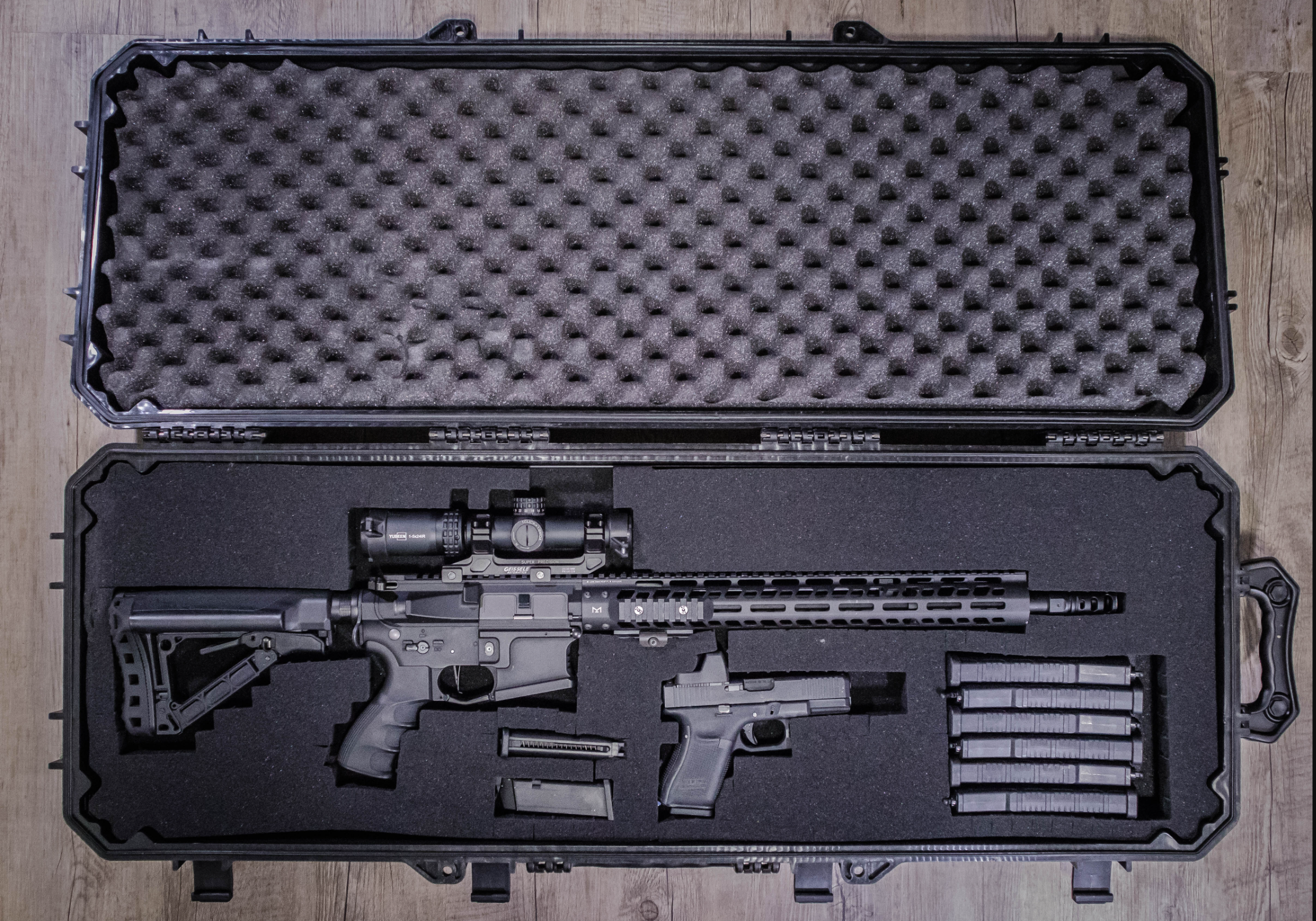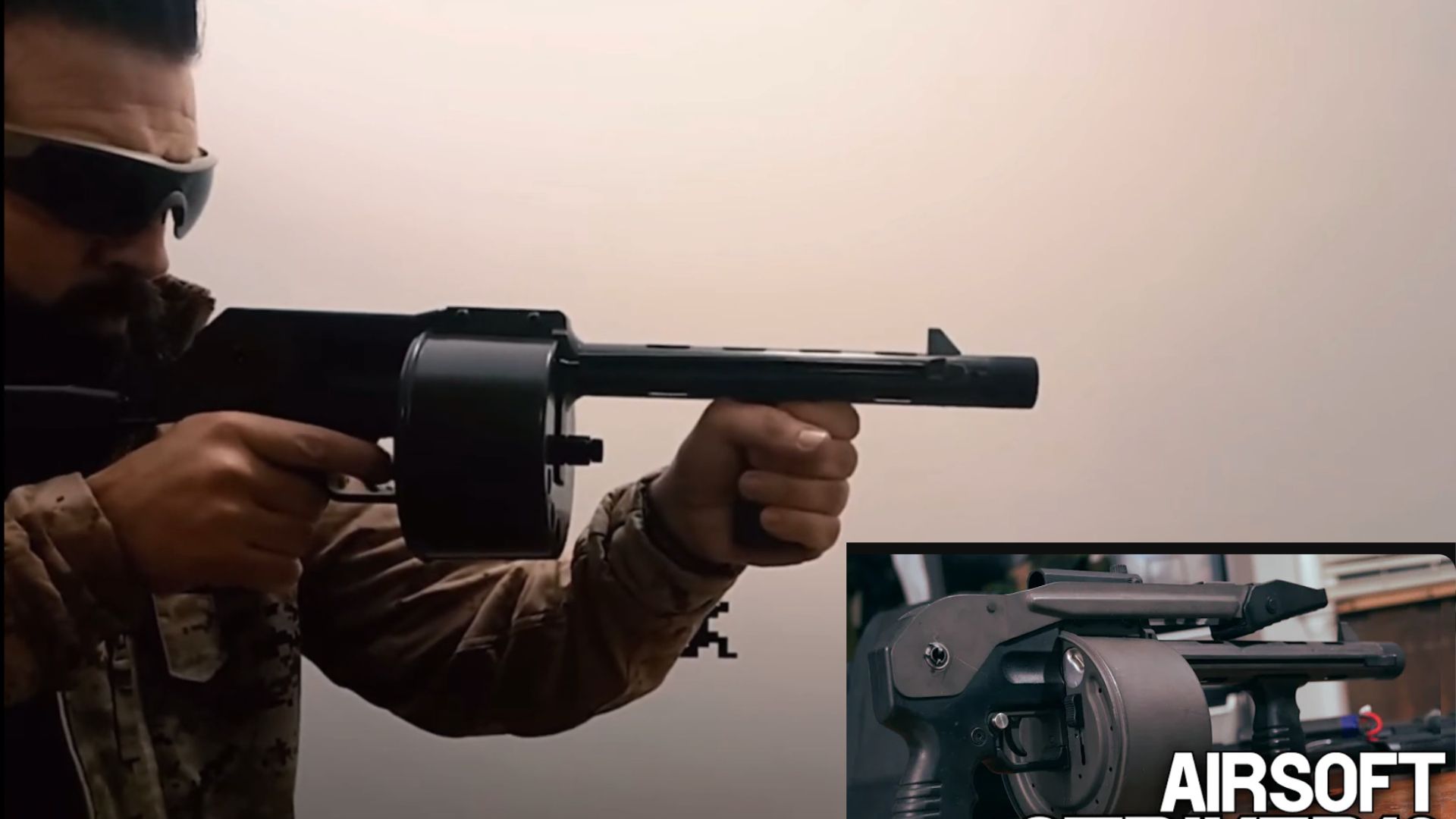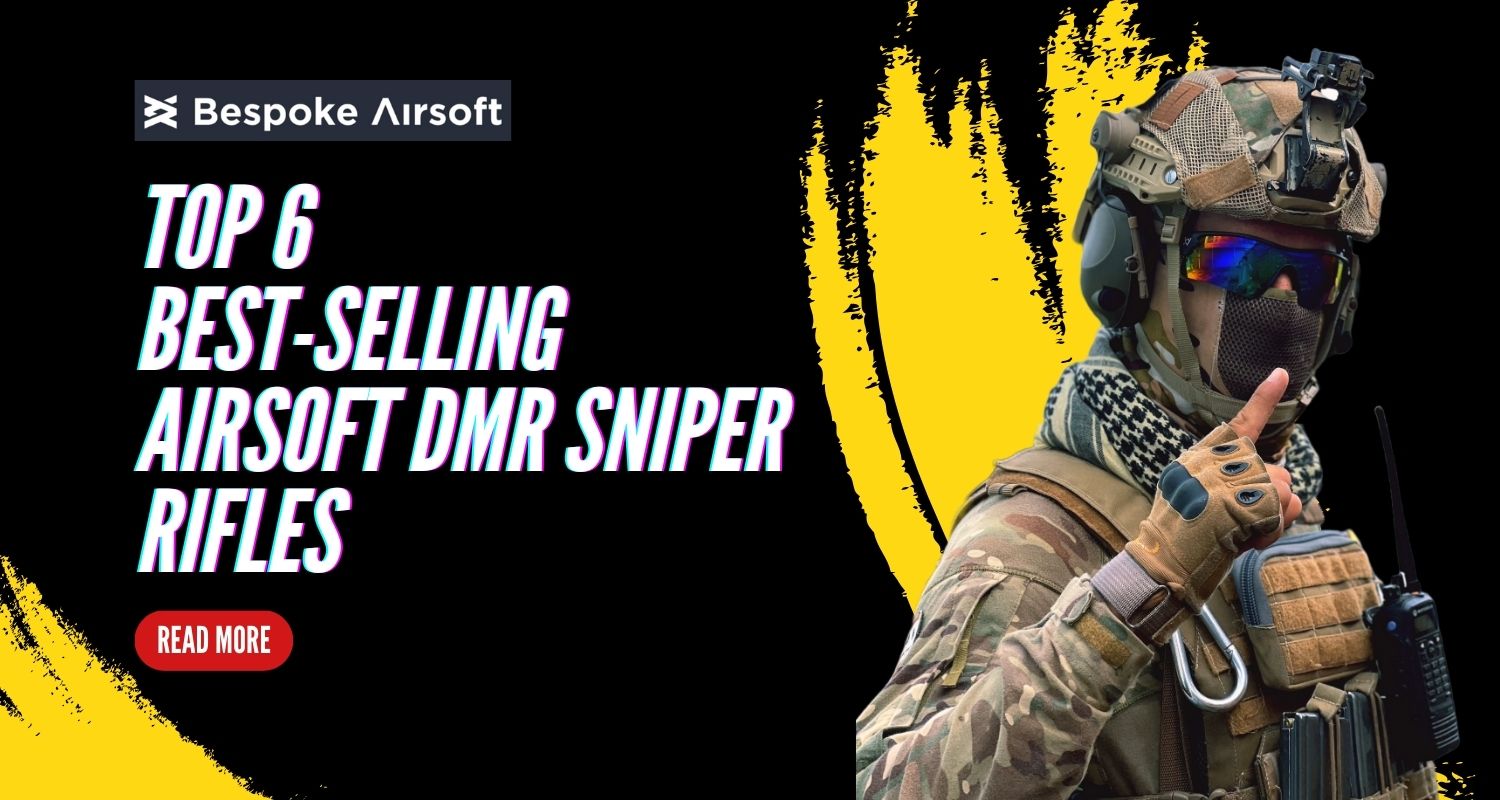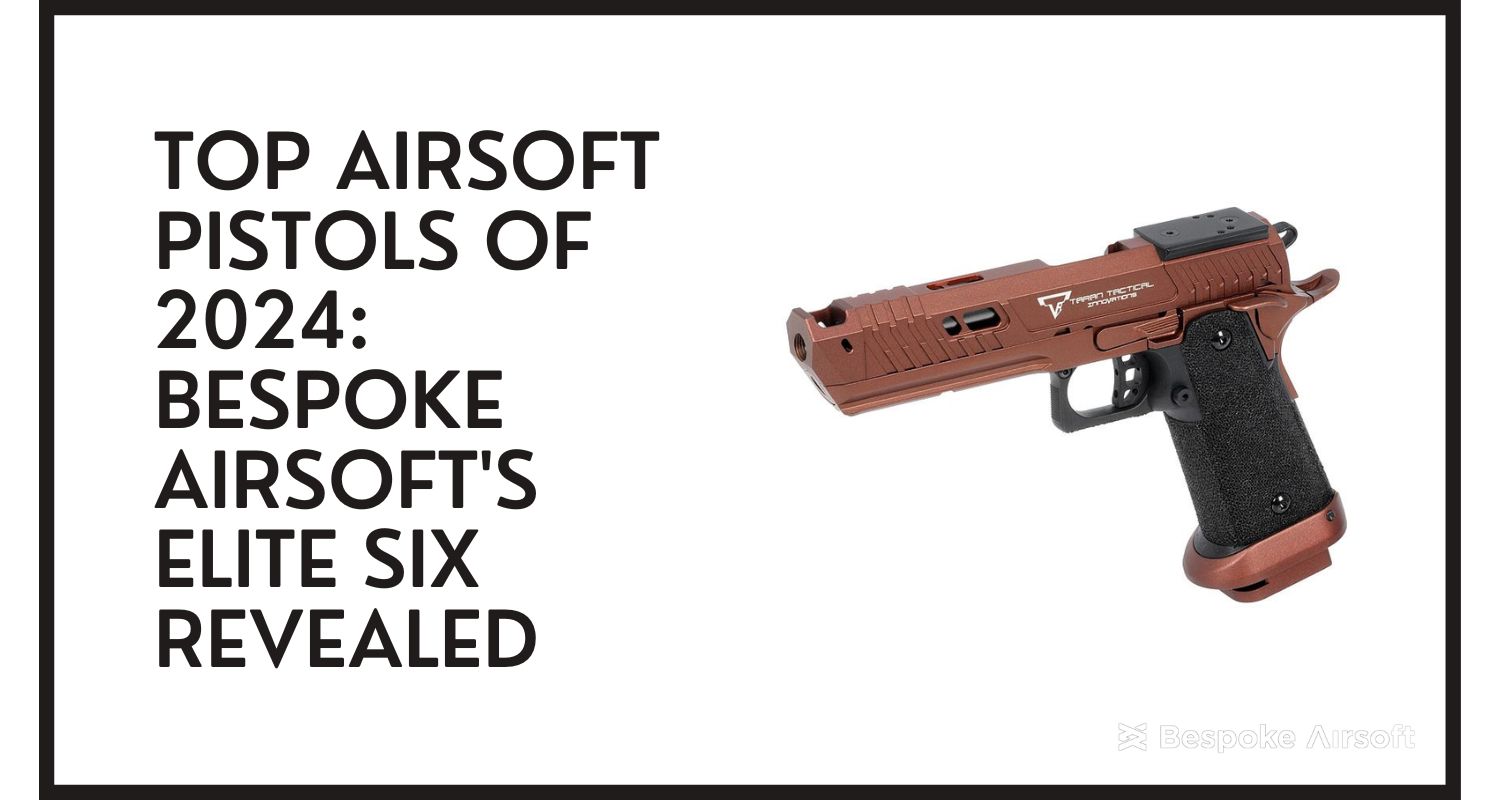Demystifying Airsoft Gun Laws in the UK
Airsoft guns have, over the years, gained remarkable traction as tools for recreational and sports activities. They are replica firearms that launch 6mm plastic BBs through gas, electrically powered, or spring-loaded mechanisms. They simulate authentic combat scenarios and are used predominantly in competitive shooting games. However, their growing popularity has been paired with a surge in legal queries and concerns.
A solid grasp of the governing rules and regulations is essential to navigating the airsoft gun world in the UK. In this context, it's vital to acknowledge the key law that covers these guns, the Violent Crime Reduction Act 2006 (VCRA).
The Legality of Airsoft Guns in the UK
First and foremost, let's address the pressing question: Are airsoft guns legal in the UK? Yes, they are. However, their legality is predicated upon specific regulations that primarily concern these firearms' purchase, possession, and use.
The VCRA demarcates airsoft guns as Realistic Imitation Firearms (RIFs) and differentiates them from other imitation firearms. A RIF is a close representation of a real firearm, with the potential to be mistaken for the real thing.
Purchase of Airsoft Guns
According to the VCRA, purchasing RIFs is permissible only if the buyer can present a legitimate defence. This could be established by showing proof of membership at a UKARA (United Kingdom Airsoft Retailers Association) registered airsoft site or through a reenactment society membership. The intention here is to confirm that the buyer is an active airsoft player and will use the gun for airsoft gaming purposes.
For those without a valid defence, the law allows the purchase of what is referred to as an "Imitation Firearm" or "IF". Often referred to as a "two-tone" gun, these firearms must be brightly coloured on at least 50% of their surface area.

Possession and Use of Airsoft Guns
Once an airsoft gun is purchased, its possession and use fall under specific rules too. Owning an airsoft gun (RIF or IF) without a license is legal. However, displaying, brandishing, or using these publicly is considered criminal. Given the realistic appearance of these weapons, this rule intends to avoid causing alarm or distress to the public.
In terms of usage, it is generally accepted that you can use airsoft guns on private property, with the explicit permission of the property owner, or at a regulated airsoft site. Any misuse, including using the gun to intimidate or cause harm, can lead to criminal charges.
Transporting Airsoft Guns
Regarding the transportation of airsoft guns, the law mandates they should be carried safely and concealed. A gun case or a bag is typically recommended. The same rule applies when you're transporting the gun to and from an airsoft site. The principle here is simple: avoid causing public concern by unintentionally showcasing your airsoft weapon.

Age Restrictions
Lastly, let's touch upon age restrictions. Anyone above 18 can purchase an airsoft gun in the UK. Those under 18 cannot buy but can still use an airsoft gun under adult supervision, especially in a controlled environment like an airsoft gaming site.
Misconceptions and Misuse
Another aspect to consider is the common misconceptions and potential misuse of airsoft guns. Often, individuals may misinterpret the rules, leading to accidental violations. For instance, the fact that airsoft guns are legal to own without a license does not give the right to carry them openly in public. As previously stated, using or displaying these guns in public spaces can cause alarm and distress, leading to potential criminal charges.
Similarly, misuse of airsoft guns, even in jest or without intent to harm, can lead to serious consequences. It's crucial to remember that these guns, while primarily designed for recreational activities, are not toys. Their usage should be restricted to designated areas, such as airsoft sites or private properties, with the necessary permissions.
Modifications and Power Limits
Delving into a more technical side of airsoft gun laws, specific rules about modifications and power limits exist. An airsoft gun should not exceed the power limit of 1.3 joules for automatic weapons and 2.5 joules for single-shot weapons. This limit has been set to ensure the safety of players and bystanders alike. Any attempt to increase the power of an airsoft gun, thereby converting it into a firearm, is a criminal offence under the Firearms Act 1968.
The Role of Retailers
Retailers also play a vital role in ensuring the legal compliance of airsoft guns. They are required by law to verify the buyer's age and whether they possess a valid defence for purchasing a RIF. Reputable retailers are usually registered with the UKARA, which helps streamline the process of validating a buyer's eligibility.
The Importance of Awareness
The purpose of this discussion is not to intimidate or discourage individuals from participating in airsoft games or using airsoft guns. Instead, it emphasises the importance of understanding and adhering to the law. Familiarising yourself with these regulations ensures you can enjoy the sport responsibly while avoiding potential legal pitfalls.
Airsoft is a thrilling sport that can offer tremendous fun and satisfaction when conducted within the established guidelines. So, whether you're a veteran player, a novice, or someone merely interested in the sport, staying updated on UK airsoft gun laws is beneficial and crucial.
FAQs
Q1: What is the main law that governs airsoft gun regulations in the UK?
A1: The main law that governs airsoft gun regulations in the UK is the Violent Crime Reduction Act 2006 (VCRA).
Q2: Are airsoft guns legal in the UK?
A2: Yes, airsoft guns are legal in the UK. However, their legality is subject to specific purchase, possession, and usage regulations.
Q3: What are the requirements for purchasing airsoft guns in the UK?
A3: According to the VCRA, purchasing Realistic Imitation Firearms (RIFs) is permissible if the buyer can provide a legitimate defence. This defence can be established through proof of membership at a UKARA-registered airsoft site or a reenactment society membership. Those without a valid defence can purchase "Imitation Firearms" (IF) or "two-tone" guns that are brightly coloured on at least 50% of their surface area.
Q4: Can airsoft guns be used in public areas?
A4: It is illegal to display, brandish, or use airsoft guns in public areas in the UK. This rule aims to prevent causing alarm or distress to the public due to the realistic appearance of these firearms. Airsoft guns should be used on private property with the explicit permission of the property owner or at regulated airsoft sites.
Q5: What are the age restrictions for purchasing and using airsoft guns in the UK?
A5: Individuals above 18 can purchase airsoft guns in the UK. Those under 18 cannot buy airsoft guns but can still use them under adult supervision, particularly in controlled environments like airsoft gaming sites.
Conclusion
In conclusion, the legal landscape surrounding airsoft guns in the UK may seem complex, but it becomes navigable with a thorough understanding of the rules and regulations. The key takeaway is respecting these rules, engaging in the sport responsibly, and prioritising safety and legality.
Navigating the regulations surrounding airsoft guns in the UK may seem daunting at first. However, with a clear understanding of the purchase requirements, possession rules, usage guidelines, transportation norms, and age restrictions, it becomes significantly easier to enjoy airsoft activities responsibly and legally.





